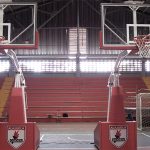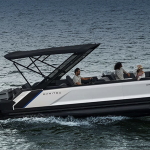Win Hanverky, a major apparel manufacturer for Adidas and other athletic brands, is back in compliance with the listing standards for the Stock Exchange of Hong Kong after restoring its public float to at least 25 percent of its total issued share capital.
The company's board of directors said the public float of the company's stock had been restored to 25.69 percent of its total issued share capital as of Dec, 29.
Win Hanverky largest shareholders and their holdings are: Quinta Asia Limited, 58.6 percent: Templeton Asset Management Ltd, 13.9 percent and two directors who own a combined stake of 1.7 percent. Quinta Asia is 70 percent owned by Win Hanverky Chairman and Executive Director Li Kowk Tun Roy and 30 percent owned by the company's Deputy Chairman and Executive Director Lai Chg Ping.
Win Hanverky operates two principal businesses. It's Manufacturing business makes sportswear principally on an OEM basis for international sports brands like Adidas, Reebok, Umbro, Jako, Warrior, TaylorMade and Puma for export to Europe. It's production facilities are located in the People's Republic of China, Vietnam and Cambodia. Its Retail and Distribution Business operates about 100 high-end fashion and sportswear stores in Hong Kong, mainland China, Taiwan and Singapore that sell both its own and licensed brands.
The company warned investors in early November that it expected to record a material drop in profit for the year ending Dec. 31 compared with 2013 due primarily to manufacturing costs as it shifts production from China overseas and higher non-cash amortization expenses of license rights and trademarks arising from an acquisition.
For the six months ended June 30, the company reported profit attributable to shareholders of HK$18.2 million ($2.35 mm) on sales of HK$1.78 billion ($229 mm), down 68 percent and up 34.4 percent respectively from the first half of 2013. The sharp decline in profit was due primarily to factory closings that resulted in one-time charges of HK$44.6 million ($6 mm), while the sharp increase in sales was attributed primarily to increased orders ahead of the 2014 FIFA World Cup.















